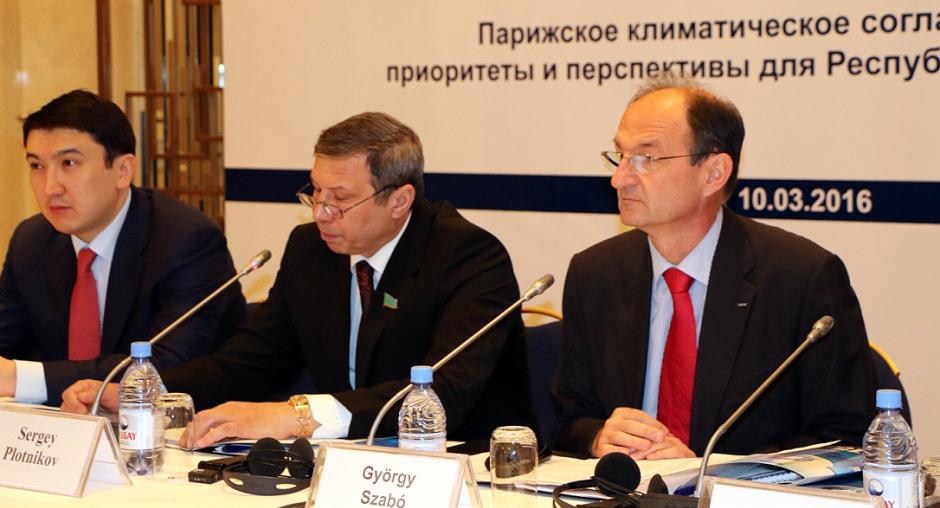OSCE supports conference on reducing greenhouse gas emissions in Kazakhstan

ASTANA, 10 March 2016 – An OSCE-supported conference on practical steps by the government to reduce greenhouse gas emissions took place today in Astana, with national and international experts presenting proposals to encourage energy efficiency and examining ways to introduce green technologies.
Some 50 parliamentarians, high-ranking representatives from the Foreign, Energy, Agriculture, and National Economy Ministries, as well as business associations, academia, international organizations and civil society gathered for the overview of Kazakhstan’s committed obligations within the Paris Climate Agreement.
Participants also reviewed the national action plan to reduce greenhouse gas emissions and developed recommendations for implementing Kazakhstan’s Low Greenhouse Gas Emission Strategy.
“Modern energy and financial crises require changing the paradigm of economic development in general and the transition to the introduction of high, energy-saving technologies and the introduction of renewable energy sources,” said Kazakhstan’s Energy Vice-Minister, Magzum Mirzagaliyev. “These priorities aim to reduce energy intensity of Gross Domestic Product by 25% by 2020, 50% in 2050 and achieving a 50% share of renewable energy in total electricity generation by 2050."
György Szabó, Head of the OSCE Programme Office in Astana said: “For the OSCE the theme of energy security is inextricably linked to the stability and comprehensive security. We therefore pay considerable attention to raising awareness of threats posed by climate change and opportunities for sustainable economic development. What is key in this approach is the involvement of all parties, including the scientific community and international experts, in the decision-making process.”
The event was co-organized by the OSCE Programme Office in Astana in co-operation with the Energy Ministry and with the support of the Green Academy, the German Foundation for International Co-operation (GIZ) and the United Nations Development Programme.
The event is part of the Programme Office’s long-standing efforts to promote green growth and sustainable development principles in the host country.
